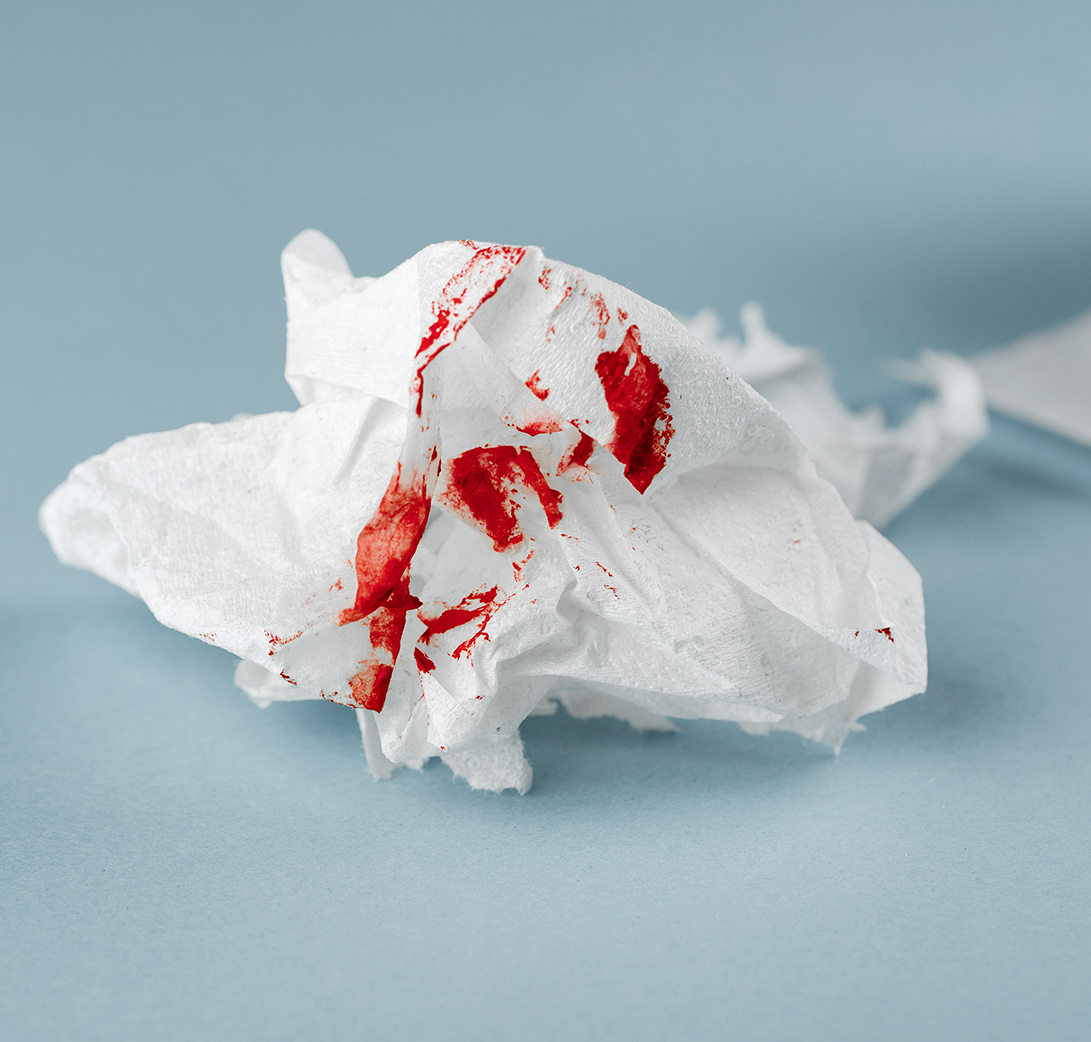Blood in stools refers to the presence of blood in bowel movements, which may appear as bright red streaks on toilet paper, red or maroon-coloured stools, or even black, tarry stools. The appearance and amount of blood can provide clues about the underlying cause. While minor causes like haemorrhoids or anal fissures are common, blood in stools can sometimes indicate more serious conditions which would require a detailed evaluation to rule out, or treat.


There are several possible reasons for blood in stools, ranging from benign causes to more concerning ones. These include:
- Haemorrhoids: These are swollen veins in the rectum or anus can cause bright red blood, which can be seen during wiping.
- Anal Fissures: These are small tears in the anal lining, usually caused by passing hard stools, which can result in streaks of blood.
- Diverticular Disease: These small pouches in the colon (diverticula) can sometimes bleed, causing visible blood in the stool.
- Gastrointestinal (GI) Infections: Certain GI infections can lead to inflammation and bleeding in the digestive tract.
- Inflammatory Bowel Disease (IBD): Conditions like Crohn’s disease or ulcerative colitis can cause chronic intestinal inflammation and bleeding.
- Peptic Ulcers: Sores and ulcers in the stomach lining or upper small intestine may bleed and result in melena (black, tarry stool associated with upper gastrointestinal bleeding).
- Colorectal Polyps or Cancer: Both benign and malignant growths in the colon or rectum can lead to blood in stools, whether visible to the naked eye or not.
Some factors can increase the likelihood of developing blood in stools:
- Dietary Habits: Low fibre intake may lead to constipation, increasing the risk of haemorrhoids or anal fissures.
- Chronic Constipation or Diarrhoea: These conditions can irritate the anal or intestinal lining.
- Family History: A history of colorectal cancer or IBD among family and close relatives raises the risk of related conditions.
- Age: The risk of conditions like diverticulosis or colorectal cancer increases with age.
- Medication Use: Long-term use of nonsteroidal anti-inflammatory drugs (NSAIDs) or blood thinners can increase the risk of gastrointestinal bleeding.
Consider seeking medical attention if you experience:
- Persistent Bleeding: Blood in stools that lasts more than a few days
- Large Amounts of Blood: Significant blood loss or passing clots
- Accompanying Symptoms: Symptoms like abdominal pain, weight loss, fatigue, or changes in bowel habits
- Black, Tarry Stools: This may indicate bleeding in the upper digestive tract
- Family History of GI Conditions: If you have a family history of colorectal cancer or IBD
For younger individuals or those with no risk factors, a small amount of blood from minor causes like haemorrhoids may not require immediate attention. However, please consult a doctor if you are unsure or symptoms persist.
The treatment for blood in stools depends on its underlying cause. To identify this, a detailed medical evaluation, including a physical exam, stool tests, and possibly endoscopy or imaging scans, will help the doctor identify the cause of the bleeding.
Common treatment options include:
- Lifestyle Changes: Increasing one’s fibre intake and staying hydrated can help to prevent constipation.
- Medications: For conditions like haemorrhoids or IBD, doctors may prescribe creams, anti-inflammatory drugs, or antibiotics.
- Endoscopic Procedures: Polyps can be removed, or bleeding sites treated during procedures like colonoscopy.
- Surgical Interventions: In severe cases, surgery may be required for conditions like diverticular bleeding, cancer, or advanced IBD.

We understand your anxieties and our team is here to support you throughout your health journey through our comprehensive screening services, diagnostic tools and treatment plans.
| Tel | : | +65 6908 6106 |
| Fax | : | +65 6908 6107 |
| : | +65 8022 2866 | |
| : | drtoh.eelin@gmail.com |
| Mon-Fri | : | 8:30am - 12:00pm2:00pm - 5:00pm |
| Sat | : | 8:30am - 12:00pm |
| Sun & PH | : | Closed |

